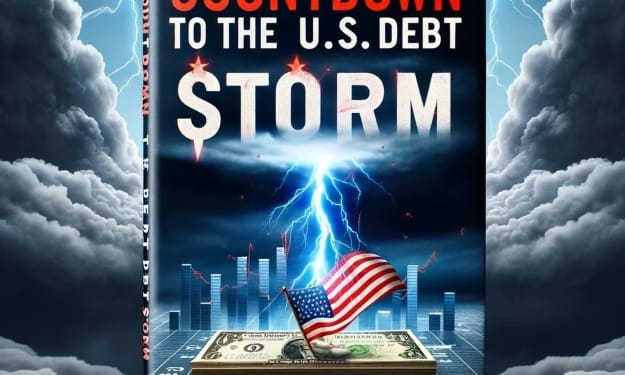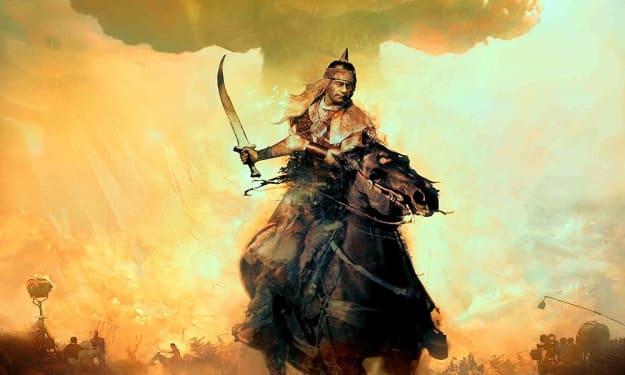What happened to the Contested Convention?
There was a time where the nominee had to win in convention, but those days are gone.

The Death of Debate and the Rise of Conformity
There used to be a time in American democracy where the parties that rule this nation would be up for lively debate. Within the confines of their conventions they would hash out exactly which kind of candidate they wanted to put forth. It was called a brokered convention. This sort of vetting allowed for, not only the most skilled candidate to be chosen, but the most likely to win as well. If you had an electorate that was split on the main focus of the party, it also allowed for a candidate everyone could agree on, at least in that political party.
Well, you hold your breath for the skill part because you never really know, but you have to try and trust the party to make the right decision.
Lately though, there has been an aversion of debate at the convention. There are rules set in place to try and have a clear cut winner by the time of convention. It has also become custom to no longer challenge these perceived norms, that everybody should form ranks and march along. I think this is exactly what let to the election we had this year.
I will look at 3 examples of contested conventions and how they impacted the American political landscape.
1) The Election of 1844
This was the year that James K. Polk won the presidency as a dark horse candidate for the democratic party. For those of you not in the political know, a dark horse candidate is a before unseen candidate that delegate leaders can agree on. In the case of a deadlocked convention it is a compromise. After a convention battle between Incumbent President Martin Van Buren and Lewis Cass left the convention deadlocked, it took until the 9th ballot for James K. Polk to be recognized as the nominee. He was good choice and went on to be an effective and efficient President.
2) The Election of 1912
With a massive split in the republican party creating tension between the progressive policies of Theodore Roosevelt and the more conservative views of Incumbent Howard Taft, the disagreement at the convention let to a split ticket during the run for the presidency. With Theodore Roosevelt winning a majority of the delegates, questionable seating of the remaining delegates led to a Taft nomination. The Bull Moose party was promptly formed as Teddy Roosevelt left the convention. This was the main reason that Woodrow Wilson was able to easily win the presidency over a split republican base, with Teddy Roosevelt's Bull Moose Party coming in 2nd and republican Howard Taft a distant 3rd.
3) The Election of 1924
The democratic party was scrambling to find a worthy successor to the presidency of Woodrow Wilson and found itself a party mired in disagreement. Klu-Klux Clan members factored heavily in the voting and pushed for former treasury secretary William McAdoo against New York city mayor Alfred Smith. The convention went to an astounding 103 ballots before the compromise candidate of John W. Davis was agreed upon. The democrats went on to get crushed by incumbent president Calvin Coolidge.
There are times when the contested convention can score a compromise candidate or be a total flop. There hasn't been a contested convention for either of the two major parties since 1952. This is the year that Adlai Stevenson didn't win the democratic nomination on the first ballot and the last year a convention went to multiple ballots. There was a flirt with it at the 1976 Republican convention where Reagan narrowly lost to incumbent Gerald Ford, but it wasn't truly contested as it didn't go to multiple ballots.
I think healthy debate is good. I think it helps keep the good ideas afloat while sifting out the junk ones. I also think there wasn't enough of it this year, and that's why the majority of voters for both parties were unhappy overall with their options. Instead of closing rank, these conventions should be about opening up discussion. Maybe that will happen in the future, as it used to often in the past, and maybe we'll all be better for it.
A good resource for further information;
http://www.pewresearch.org/fact-tank/2016/02/04/contested-presidential-conventions-and-why-parties-try-to-avoid-them/
About the Creator
Peter Carriveau
Writer of many things who likes politics, comics, and vintage video games. When not writing, Peter likes spending time with his beautiful partner Angelica, and our two daughters.
Enjoyed the story? Support the Creator.
Subscribe for free to receive all their stories in your feed. You could also pledge your support or give them a one-off tip, letting them know you appreciate their work.






Comments
There are no comments for this story
Be the first to respond and start the conversation.